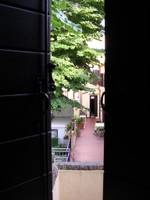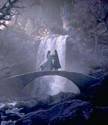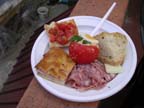
About the Catholica
Previous Posts
Toscana and the Refuges of LightThe Anti-Narnia
Ballad of the White Horse
Red and Black (at the OCP Cafe)
Dvorâk
Polyphonic Bliss
Best. Motet. Ever.
Syndication

News
Seattle CatholicCatholic Exchange
Crunchy Catholicism
Being CatholicCaelum Et Terra
Mystical Rose Herbals
Mary Gardens
Tridentine Tiramisú

St-Martin de Bréthencourt
Chartres Pilgrimage
(muchas fotos!)
Campos Photos
LMSEW Photos
Catholic Artists Today

Official Passion Site
Smallpax Guild
Nicholas Wilton Music
StudiObrien
Via Rosa Rosaries
Regina Doman
Poetry of Pavel Chichikov
Free Literature On the Web

Project Gutenberg
G.K. Chesterton
On Nothing
On Something
First and Last
Europe and the Faith
Belloc - Poetry
More Belloc Poetry
John Henry Newman
Christopher Dawson
Frederico GarcÃa Lorca
Tolkien

Romantic &
Imaginative Theology
Council of Elrond
Anke Eissmann's Art
Angels and Elves
Christianity and Middle Earth
Coulombe Essays
Ardalambion
Gwaith i Pheddain
Arthrand Board
Crazy-Go-Nuts
Homestar RunnerStrindberg & Helium
SuperPope Anime
The Onion Dome
Blogs I Like

Alle Psalite
Andrew Cusack
Angry Twins
Cacciaguida
Church of the Masses
Curt Jester
Dappled Things
Devout Life
Dignare Me Laudare Te
Erik's Rants & Recipes
Flos Carmeli
Give Tongue
Hallowed Ground
The Idyllist
Inn at the End of the World
Jade's Trick
Jelly-Pinched Theatre
Old Oligarch
Open Book
Orthonormal Basis
Sancta Sanctis
Secret Agent Man
Shrine of the Holy Whapping
Video Meliora
Vivid
The Western Confucian
Zadok the Roman
Christendom Blogs
Charlemagne's PalaceThe Christendom Commons
Meet Virginia
Destination: Order
Enchiridion
Fiddleback Fever
JulesArts
Midnight Radio
Nota Bene
¿Qué?
somewhatlost
This Red Rock
West of the Moon
Vestal Morons
Zucchero
<< # St. Blog's Parish ? >>

Archives
- April 2004
- May 2004
- June 2004
- July 2004
- August 2004
- September 2004
- October 2004
- November 2004
- December 2004
- January 2005
- February 2005
- March 2005
- April 2005
- May 2005
- June 2005
- July 2005
- August 2005
- September 2005
- October 2005
- November 2005
- December 2005
- January 2006
- February 2006
- March 2006
- April 2006
- May 2006
- June 2006
- August 2006
- September 2006
- January 2007
- February 2007
- July 2007
Kiss me, I'm Catholic.
Saturday, April 24, 2004
Toscana and the refuges of light

Storm over Impruneta
Last summer my youth symphony went on tour in Italy, going through Venice, Napoli, Florence, Rome - those iconic cities that represent something "beautiful and terrible" in the mind, long before you see them. (Well, maybe Napoli is just "terrible." If you ever go there, make sure you go to confession before you try crossing the street.)
By day we walked in the cities; by night we gave concerts in the outlying towns. We always started playing at 9:00 in the evening, to avoid the heat (which was murderous. We arrived in Venice during a record heat wave; there were people actually jumping into the canals. [Now that's desperation. Ooh! Do I get Belloc-points for my interior brackets?{"Is this algebra?"}]).
It was, by turns, astonishing, exhausting, exhilarating, and poignant. For someone whose idea of a Great Cathedral was the little Romanesque see of Santa Fe, New Mexico (built by a very homesick French bishop), the churches of Florence and Rome were "a real eye-opener, and no mistake!" My awe over Saint Peter's and Santa Croce was very amusing to my friends - but not to the chaperones, who kept dragging me away from the votive candles so that we could hit the next "historical site."
The numen of music and religion surrounded us everywhere, continuing to haunt us even when we weren't giving concerts or visiting churches. Religion in particular. The shrines and churches seemed to be a sort of catalyst to people, stirring us into talking about a usually taboo subject. I was pretty much the only Catholic in the group, and people kept bringing that up. The adults would ask what I was praying for when I lit a candle. My roomate (protestant) talked about CS Lewis with me, and I sang a Kyrie and the Salve Regina for her. I found myself standing outside a hotel at midnight, arguing about religion with my friends Tobias and Alex (Alex's father is a Buddist while his mother is Catholic. He is - or was - thouroughly confused. He spent the whole argument channeling Carl Sagan, which was so annoying that even Tobias started gesticulating at the stars and earnestly treating of the First Cause.), and as we went back inside, Tobias started asking me how God could be a Trinity, and we ended up talking for another quarter-hour.
I couldn't help thinking of my own religious questions, since for so long I had been hearing about the Demise of the West and the End of Christendom As We Know It. I came to Italy wondering if I would see any evidence of the decline, wondering if words like this were true:
"The loss of faith, in Europe, is like an ‘unseen black star’ that still has a tremendous gravitational pull. They don't understand why their culture is failing. They don't understand why divorce rates and suicide rates are so high. They don't understand why so few European women have more than one child, and why on most European streets, you see more dogs than children. This is the impact of the death of real Christian belief in Europe." - Dale Hurd, CBN News Sr. Reporter
As I walked back to our hotel in Florence one day, tired and hungry, I couldn't keep that darkness at the back of my mind any more. So far I had seen Venice, Cento, Bologna and Florence - and in each city I could count the children I saw on one hand. It was troubling me.
The hotel was six stories with no elevator, and I was on the sixth floor. It was like a sauna in the room, because the other girls refused to open the shuttered windows and let in some light and air (the mosquitoes would have gotten in too). After an hour of this purgatory we got on the bus and drove off for our concert. Soon after we crossed the Arno, the crowded city fell behind us. It startled me when I looked out the window and saw only sunbaked hills, with a tower or a cypress here and there. It looked for all the world like the East Bay hills in summer - but much older.
We stopped in Impruneta, at the top of one of those Tuscan hills. The little town boasted a church that had been built in thanksgiving for a miraculous delivery from the plague - Mary's doing, as usual. Mariae Precibus Depulsa Peste Stygmatum D Franc Flor Societas Deipara Liberatrici is what it said on the façade, anyway. You can see the church in one of the three bottom pictures; it closes off the eastern side of the town square. Its ochre walls glowed with the level light of the sun, which was already touching the western rooftops. Dark clouds were gathering behind the church, so that the light looked strange on it. Some of the guys started unloading the truck and bringing the drums onto the stage that had been set up next to the church, and the rest of us left the piazza and went to take in the view on the other side of the town. (Look at the middle picture at the bottom to see it.) After that, we all ate dinner on a little terrace. (The wives of the city council members made dinner for us - it was so good...)

Garden at the base of the wall
While they finished setting up tables in front of the stage, I stood in the piazza with another girl, also named Meredith, watching the turbulent clouds moving over us like a huge armada. Two cheerful-looking nuns in long blue habits walked past the church. Then one of the wooden side doors opened, and a family walked out. Smiling, they closed the door as if on a beautiful secret. We suddenly wanted to see what was inside. The other Meredith took my hand, and we went under the inviting colonade on the side of the church. We read a bulletin board that listed times for Mass and Eucharistic Adoration, dates when the priest was teaching catechism classes for children, and other hopeful pieces of information. But the huge heavy door was so imposing, and our glimpse of the interior darkness suggested something so sacred and inviolate, that we couldn't go in. I still don't know what the inside looked like. It remains a wonderful mystery.
The piazza was a silent amphitheater for the passing clouds, its periphery making a small and intimate horizon. The sun had fallen just out of view. The western roofline was fringed with a prismatic nimbus of light.
Suddenly the whole aspect of the piazza was changed: everything took on the cool and gentle cast of evening, and receded into an aqueous twilight. And children began running into the square.
When we arrived in the sultry afternoon, there hadn't been a child in sight. Now they were all coming out of doors - brothers and sisters, friends finding each other. Some of the boys ran over to the colonade of the church and started kicking a soccerball around, shouting delightedly. Five girls climbed on the stage and huddled together, playing a game. A boy pushed his friend around in a wagon and another one chased after his dog. There were children running everywhere, playing tag, circling back to their parents who were watching them happily from the tables in front of the stage.
Within the four sides of that piazza, under the shadow of the church and its campanile, there was a feeling of such security and certainty... I can't believe that it was ilusory. I could see it and feel it so plainly. Maybe it was only a small chink in the darkness, and maybe it was more fragile than I knew, but that place had hope and life in it. When a hundred lights go out and only one is left, that light is then brightest.
I watched them for what seemed like a long time, listening to the quiet echo of their feet, a sound like rain. Then the concert was begining, and I picked up my violin and went up on the stage. By now it was completely dark, and the lights on the stage and around the tables were shining. We started with Rimsky-Korsakov. Thunder spoke on the horizon, and a fierce gust of wind hit us, blowing away music and knocking over stands. Somehow we kept the Capriccio Espagnol going; brilliant skirls of spiccato and pizzicato, the interlude of a flute solo that evokes a hot, still afternoon, somewhere between waking and sleeping. Our sunwashed music made a surreal contrast with the stormy night, and people were eating, laughing, talking quietly at the tables, under the festive stage-lights.
A little girl in a red dress was dancing in front of the stage. She was so absorbed, whispering to herself a little, as children do.
A few cold raindrops strafed us, but those vast thunderclouds, so black and heavy that they seemed to be defying gravity, kept racing overhead. The storm passed us over that night.
As we left, it seemed like the whole town was waving goodbye, and we waved back until their faces were lost in the darkness and Impruneta was gone.
Men go by me whom either beauty bright
In mould or mind or what not else makes rare:
They rain against our much-thick and marsh air
Rich beams, till death or distance buys them quite.
Death or distance soon consumes them: wind
What most I may eye after, be in at the end
I cannot, and out of sight is out of mind.
Christ minds: Christ’s interest, what to avow or amend
There, éyes them, heart wánts, care haúnts, foot fóllows kínd,
Their ránsom, théir rescue, ánd first, fást, last friénd.
- G.M. Hopkins




